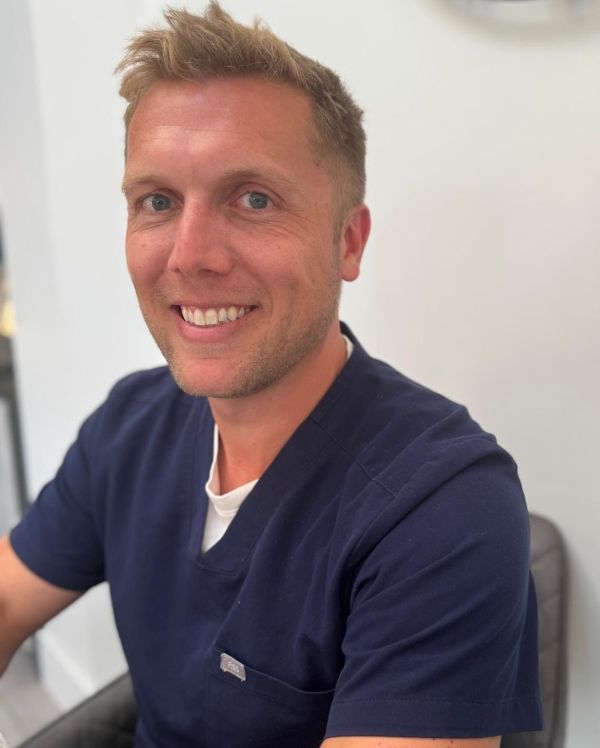For Matt Thomas, the journey from frontline ambulance work to advanced clinical practice in primary/urgent care has been one of continual growth, adaptation, and a deepening commitment to patient-centred care.
Matt began his career with the London Ambulance Service after qualifying as a paramedic through the University of Greenwich. Early on, he developed a keen interest in urgent care, which led him to a role as a Clinical Advisor for NHS 111. From there, his career evolved through a series of roles, including trainer, auditor, and eventually Clinical Network Manager, which involved having clinical oversight over clinical callbacks across the country.
Yet the pull of direct patient care remained strong. “I missed the hands-on aspects of clinical work,” Matt reflects. That longing led him to enrol in a university course focused on advanced patient assessment, minor injuries, and minor illness. Under the mentorship of an Advanced Nurse Practitioner in a local Emergency Department, Matt gained invaluable insights that laid the groundwork for his transition into more advanced roles.
After completing the course, he secured a position in a Minor Injury Unit, similar to an Urgent Treatment Centre. From there, he progressed into a development role within a GP out-of-hours service, where he received structured supervision and training. The role included a competency-based portfolio linked to a local university, and upon successful completion, Matt was awarded a BSc in Professional Development.
His academic journey didn’t stop there. He completed his first Master’s-level module in pathophysiology and diagnostic reasoning, and when his son started school, Matt transitioned into an in-hours general practice role - one that offered a better work-life balance. In this role, he became part of the ‘duty’ team, managing same-day acute presentations and running routine clinics for minor ailments. He later earned his Non-Medical Prescribing qualification, enabling him to prescribe independently.
 Matt Thomas
Matt Thomas
Today, Matt works two days a week in a GP surgery and spends the rest of his time locuming across various practices. He continues to build on his expertise, having completed additional Master’s-level modules in paediatrics and research, and leadership with the goal of achieving his MSc in Advanced Clinical Practice.
“The scope of what we treat is broad,” Matt explains. “We are able to manage first presentations of most conditions, and are able to independently refer to specialists, we’re expected to handle a wide range of clinical issues independently.” He works alongside GPs, nurses, and other practitioners, sharing caseloads and collaborating as needed. Paramedics like Matt are increasingly vital to the UK’s primary care landscape. Initially, their integration into advanced roles was driven by workforce shortages - particularly the shortage of GPs. But as paramedics began to prove themselves in these roles, their value became clear. They bring strong assessment skills, clinical reasoning, and a flexible, adaptable approach. In many UK surgeries, the on-the-day service simply wouldn’t be feasible without advanced clinical practitioners, whether paramedics or nurses.
Their reach is expanding across the UK health system. Paramedics are now embedded in GP surgeries, urgent treatment centres, minor injury units, out-of-hours services, emergency departments, hospital inpatient services, and even telephone triage and remote care. Their path has mirrored that of nurse practitioners, with growing recognition and integration throughout the system.
The benefits of having paramedics in primary care are substantial. They help reduce pressure on A&E departments by managing urgent issues closer to home, improve access to care - especially for same-day appointments - and offer continuity and flexibility, being skilled in both acute and chronic presentations. Many paramedics now undertake procedures such as joint injections and minor skin surgery, perform home visits, staff urgent care clinics, and support long-term condition management.
While national guidelines such as those from the College of Paramedics and the Royal College of Nursing provide a framework, Matt acknowledges that more standardisation is needed. “We’re still working toward consistent regulation. A national advanced practitioner register could help bring clarity and cohesion to the role.” For countries like Australia, where paramedics are still largely seen through the lens of emergency response, Matt’s story offers a compelling blueprint. “Paramedics have strong assessment skills and clinical reasoning. We’re adaptable, and we fill critical gaps in the system.”
As the UK continues to evolve its healthcare model, practitioners like Matt Thomas are proving that paramedics are not just responders—they’re integral providers of comprehensive, community-based care.

Get unlimited access to hundreds of ACP's top courses for your professional development.
Join Now